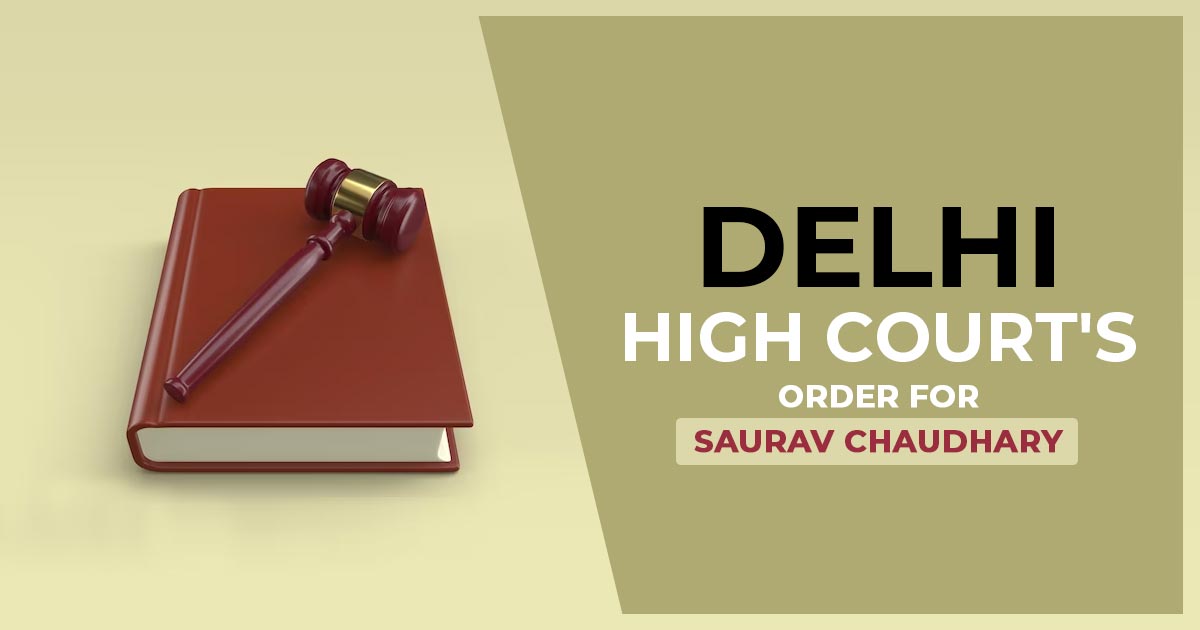
The Delhi High Court has noted that patent and trademark agents are not subject to the jurisdiction of the Bar Council of India or the Advocates’ Act, 1961. Justice Prathiba M Singh emphasized the lack of an overseeing or regulatory body for trademark and patent agents, which is currently a pressing issue.
Consequently, the bench inquired about the approach that the Office of Controller General of Patents, Designs & Trade Marks plans to adopt in order to oversee and regulate the activities of trademark and patent agents.
The court acknowledged that these agents bear significant responsibilities, such as applying for, registering, and maintaining trademarks and patents, as well as handling their legal matters with diligence.
Highlighting the consistent growth in trademark and patent applications filed with the Indian IP Office over the past five years, the court observed that this trend underscores the importance of addressing the regulatory concerns related to trademark and patent agents.
“In order to be able to file any patent and qualify as a patent agent, the person would have to fulfil the eligibility criteria prescribed under the Act and Rules, as also take an examination and clear the same. Such patent agents do not come within the ambit of the Bar Council of India or the Advocates’ Act, 1961.”
Read Also: Easy Registration Procedure for CS As a Trademark Agent
Justice Singh mentioned, “There are repeated cases wherein litigants have raised allegations against such Trade Marks Agents and Patent Agents and apart from reprimand from courts, there are no other consequences that visit them.”
The order in an appeal is passed by Justice Singh moved by one Saurav Chaudhary questioning the abandonment of his patent application titled “Blind-Stitch Sewing Machine and Method of Blind Stitching”. He asks for the restoration of the patent application.
Chaudhary’s argument revolved around the fact that the patent application was submitted in August 2019, and a request for examination was made in February 2022. The initial examination report was issued on April 29 of the following year, with the Patent Office instructing a response to be submitted within six months.
Chaudhary claimed that despite making repeated attempts to follow up, he received no response from the patent agent. Upon discovering that the application was considered abandoned due to the failure to respond to the First Examination Report (FER), Chaudhary enlisted a new patent agent and applied to have the patent application reinstated in January.
Recommended: Delhi HC: False GST Invoices Used for Evasion Should Be Considered an Economic Crime
The court had sent a notice to the patent agent, who held both a Master of Pharmacy (M. Pharma) degree and legal enrollment. He explained that, in addition to himself, his firm had another partner, and two more lawyers were employed there. He also mentioned that the firm handled intellectual property rights (IPR) litigation in district courts.
In response to the court’s inquiry about why many of Chaudhary’s emails remained unanswered, the patent agent stated that he would need to check his email account and then provide a response.
Justice Singh instructed the patent agent to submit an affidavit clarifying the circumstances that led to the application’s abandonment and to disclose the correspondence with Chaudhary following the submission of the patent application.
“Let Ms. Nidhi Raman, ld. CGSC obtain instructions as to the manner in which the office of the CGPDTM intends to regulate or supervise the functioning of trademark agents and patent agents and a report be filed in this regard by the next date of hearing,” the court ordered.
| Case Title | Saurav Chaudhary Vs. Union of India |
| Citation | W.P.(C)-IPD 9/2023 |
| Date | 01.09.2023 |
| Petitioner | Ms. Meenakshi Ogra Mr. Rishi Vohra Mr. Tarun Khurana Ms Chhavi Panday |
| Respondents | Ms. Nidhi Raman CGSC with Mr. Zubin Singh, Advocate for R-1 and 2 with Mr. Naveen Chaklan |
| Delhi High Court | Read Order |









